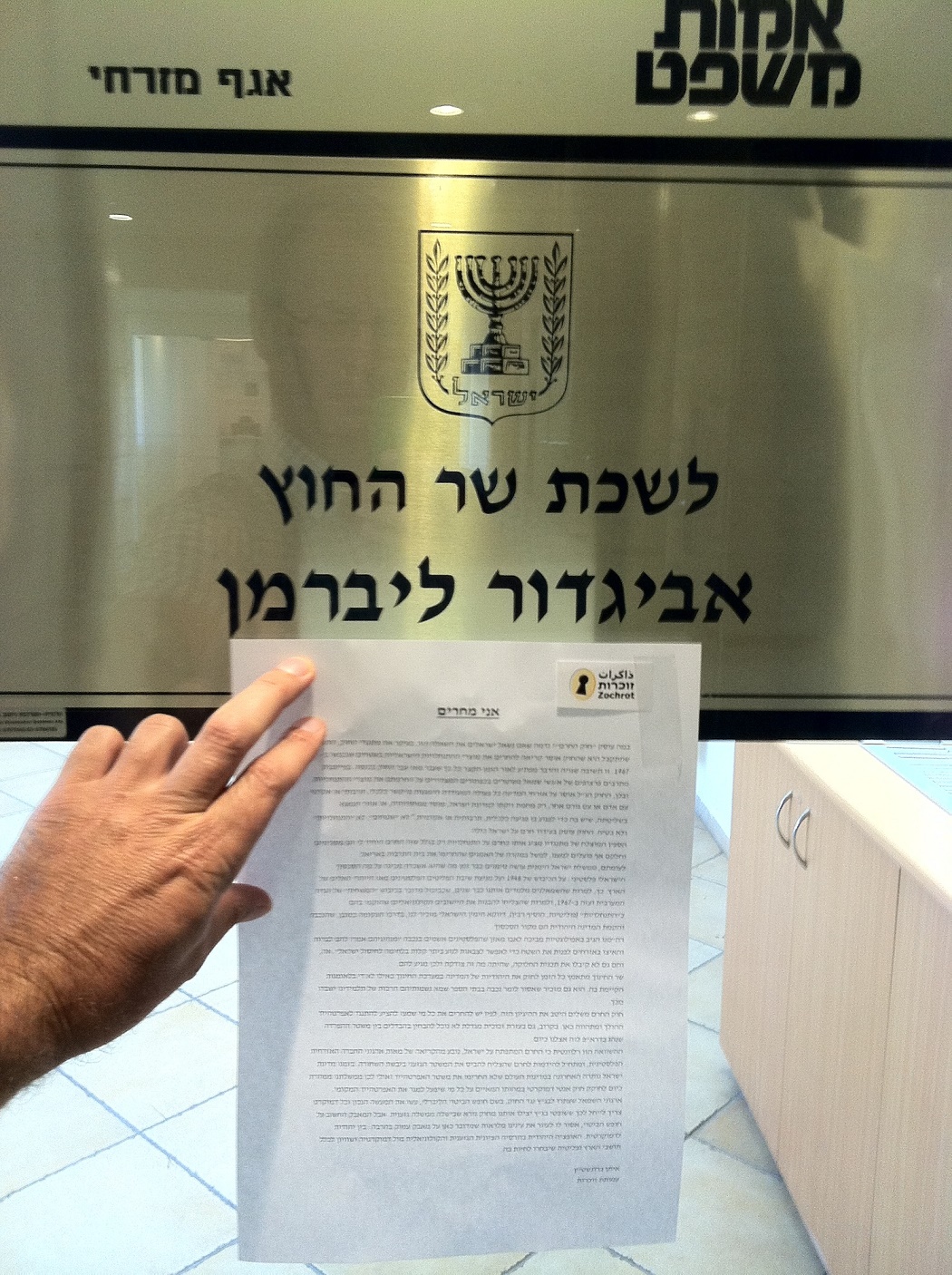What’s the “Boycott Law” about? If you ask Israelis that question, particularly those opposed to the law, they’ll probably say that it prohibits calling for boycotts of products produced by Israeli settlements located in territories captured in 1967. But that’s the wrong answer, which is surprising given how recently the law was passed by the Knesset. More and more Facebook pages display photographs of Israeli leftists wearing buttons declaring they’re boycotting products from the settlements.
Well, that law prohibits citizens of the state from engaging in any activity that encourages avoiding “economic, cultural or academic connections with a person or other entity solely because of their connection with the state of Israel, one of its institutions or an area under its control, the effect of which is to cause economic, cultural or academic damage.” No mention of “territories,” of “settlements” – no nothing. The law actually deals with boycotting Israel as a whole.
The opponents of the law have successfully spun it as a boycott of the settlements because that’s the only boycott they support. Some are even working on its behalf, such as the performers boycotting the Ariel cultural center.
Israel’s right-wing government, on the other hand, has for some time been showing signs that it understands all too well what the Israel-Palestine conflict is about: the conquests of 1948 and the Palestinians being prevented from returning after the violent Judaizing of the country. So, although the left has been telling us for years that the issue is the “destructive” occupation of the West Bank and Gaza in 1967, and although it’s succeeding in portraying the colonial localities established there as “settlements” (“political,” Rabin added), it’s actually the Israeli right that reminds us, in its contorted manner, of course, that the source of the conflict is the Nakba and the establishment of the Jewish state.
Our Prime Minister’s apologetics were simply embarrassing when he responded to Abu Mazan that the Palestinians are responsible for the Nakba because “their leaders told them to flee and urged people to leave so that the military forces could advance more freely in their war to destroy Israel.” Oh, yes – they also rejected the Partition Plan, which couldn’t have been fairer, so they got what they deserved.
The Minister of Education keeps trying to use the educational system to strengthen the Jewish character of the state, as if the schools’ current nationalistic atmosphere wasn’t enough. He also reminds us that schools are prohibited from using the term “Nakba” so as not to upset the pupils’ delicate souls.
The Boycott Law accords very well with this logic. It requires punishing anyone daring to propose opposing the apartheid that’s spreading here. Soon we won’t be able to see the differences between South Africa’s apartheid regime and ours, even if we use a magnifying glass.
This is an appropriate comparison, because the boycott of Israel that is developing is the result of calls by hundreds of Palestinian civil society organizations, and is beginning to resemble the boycott that successfully overcame the South African racist regime. Israel was the only state not to boycott the South African apartheid regime, which may be the reason our government is now rushing to pass an essentially anti-democratic law that threatens everyone opposing the apartheid being established here.
The organizations on the left that petitioned the Supreme Court to overturn the law, based on liberal conceptions of free speech, did the right thing, and every democrat must hope that the justices will rescue us from the terrible law cooked up by a racist government. But we must not allow the important struggle for free speech to blind us to the fact that the struggle is actually a more fundamental one: between Jewish and democratic - the Jewish option, in its racist, colonial Zionist version, versus democracy and equality for all the country’s residents and refugees who choose to live here.
Translation to English: Charles Kamen


